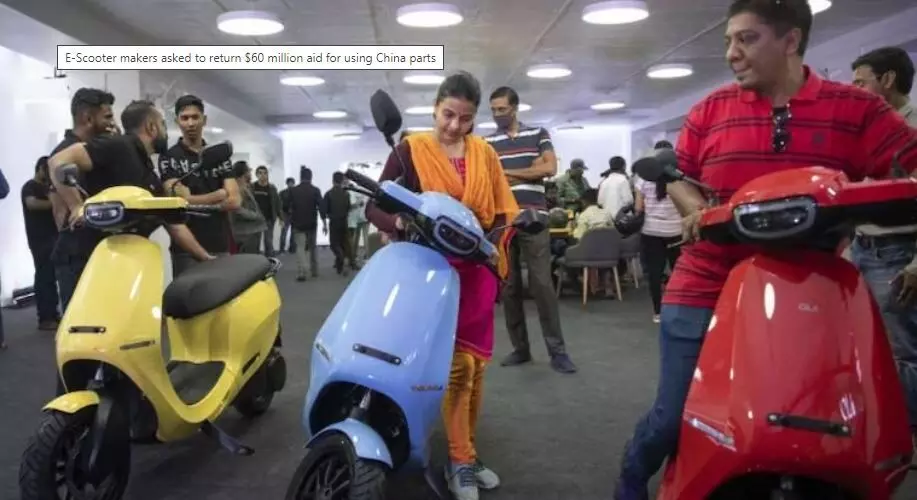Hero Electric Scooter and Five Other Companies to Return $60 Million in Subsidies for Using Chinese Parts
As India embarked on a determined journey to transform the world's largest two-wheeler market into a green one, a plethora of electric scooter startups swiftly emerged.
image for illustrative purpose

As India embarked on a determined journey to transform the world's largest two-wheeler market into a green one, a plethora of electric scooter startups swiftly emerged. However, many of these startups are now falling out of favor due to their reliance on Chinese parts instead of local sourcing.
The Indian government is demanding that six companies, including Hero Electric Vehicles Pvt, which was once India's leading e-scooter manufacturer, return Rs 500 crore rupees ($60 million) in subsidies for violating localization rules. This move has disrupted the flow of much-needed capital for these companies.
The root of this issue can be traced back to last year when a series of e-scooter fires, including incidents involving Okinawa Autotech International Pvt and Ola Electric Mobility Pvt, prompted the government to investigate whether companies were complying with the localization norms of a subsidy program. It was revealed that some manufacturers were importing ready-to-use parts, mainly from China, which left them with little control over the quality of their end products, thereby putting customers at risk.
In contrast, Ola has emerged relatively unscathed from the investigation and is now the dominant player in India's e-scooter market. The company has announced plans to further localize its supply chain by establishing an electric battery factory and recently raised $140 million in a funding round led by Singapore's Temasek Holdings Pte as it prepares for an initial public offering.
On the other hand, companies like Okinawa, Hero, Greaves Electric Mobility Pvt, Revolt Motors, Benling India Energy & Technology Pvt, and Amo Mobility Solutions Pvt are facing challenges and struggling to attract investors as the government withholds subsidies worth 12 billion rupees. According to the Society of Manufacturers of Electric Vehicles, e-scooter startups have collectively incurred losses of 90 billion rupees without these incentives.
Ather Energy Pvt, the third-largest startup in the sector, is seeking to raise 9 billion rupees from existing shareholders Hero MotoCorp Ltd. and GIC Pte, while TVS Motor Co., the second-largest player, is reportedly in discussions with Goldman Sachs Group Inc. for additional funding.
The transition has been particularly challenging for early entrants like Hero, which began selling e-scooters in 2007. These companies have struggled to realign their supply chains in accordance with India's localization rules, which were only introduced in 2019. In contrast, Ola had the advantage of establishing a supplier base that complied with the government's requirements from the outset, as it entered the market in 2021.
As the scramble for funding continues, the stringent localization rules are impeding progress in the electrification of two-wheeler transportation in India. This is concerning because a thriving e-scooter industry is crucial for India to come close to achieving its zero-emissions objectives, especially at a time when it lags behind other countries, and electric cars have not gained significant traction.
In India, factors such as the high upfront cost of electric vehicles, limited choices, and a scarcity of charging infrastructure have hindered the transition from gasoline cars to electric ones, despite worsening pollution, particularly in cities like New Delhi. According to BloombergNEF, only 1.3% of the 3.8 million passenger vehicles sold in India last year were electric, whereas in some cities in China, one in three new cars sold are electric.
While building a local supply chain and promoting the growth of domestic auto parts manufacturers is commendable, the environmental implications of such a move in a market heavily dominated by motorcycles must also be considered.

